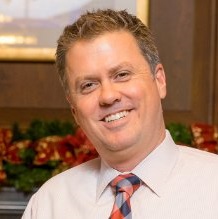WEF Senior Director of Communications Travis Loop blogs about how much WEF members care about the global water crisis and are contributing to make a difference.
Most of us are fortunate to live in places where we have safe drinking water and proper sanitation, and much of the day-to-day work of Water Environment Federation (WEF) members is focused in communities and countries with these essential services. But World Toilet Day is an occasion for us to deliberatively pause and consider that a huge portion – an unacceptable segment – of the human population isn’t so lucky. They don’t have clean water flowing out of a tap or access to effective sanitation.
Today, a staggering 4.5 billion people live without safely managed sanitation and about 900 million people still practice open defecation. The impact of exposure to human feces on this scale has a devastating impact upon public health, living conditions, education, and economic productivity across the world. Also, 80 percent of the wastewater generated globally flows back into the environment without being treated or reused.
World Toilet Day is organized by the United Nations and is designed to spur action to ensure that everyone has a toilet by 2030. This is part of the U.N.’s Sustainable Development Goal No. 6 of ensuring the availability and sustainable management of water and sanitation for all.
While the work of WEF and its 35,000 members is primarily in developed nations where most people have access to established infrastructure, there are plenty of examples of how much WEF members care about the global water crisis and contribute to make a difference. Let’s consider two of them:
Water For People exists to promote the development of high-quality drinking water and sanitation services, accessible to all and sustained by strong communities, businesses and governments. The organization currently works in nine countries – Honduras, Guatemala, Nicaragua, Bolivia, Peru, Malawi, Rwanda, Uganda, and India. WEF members have a long history and deep connection with Water For People, whether as volunteers or through fundraising activities conducted by Member Associations around the country. Listen to a podcast episode about Water For People.
Global Water Stewardship resolves sanitation issues in the developing world by educating people and engineering sustainable centralized solutions that keep waterways clean and communities healthy. The organization was founded by members of the Central States Water Environment Association and is active in Costa Rica, where they help design wastewater treatment systems, train local residents to serve as operators, and educate people about paying sewer bills. Listen to a podcast episode about Global Water Stewardship.
These two nonprofit organizations are driven by water professionals, on staff or as volunteers. But they also depend heavily on donations. World Toilet Day, Giving Tuesday, and the holiday season are all appropriate occasions to make charitable contributions to worthy causes like these and show how much WEF members care.


 Travis Loop is the Senior Director of Communications and Public Outreach for the Water Environment Federation. He has more than 17 years of experience in communications, government, and media, with a focus on environmental and water issues. Travis most recently served as the director of communications for EPA’s Office of Water and previously managed public affairs for the Chesapeake Bay Program. Prior to that, he was the speechwriter and a communications manager for the Governor of Hawaii. Travis spent the first seven years of his career as a newspaper reporter and editor in North Carolina; Washington, D.C.; and Hawaii.
Travis Loop is the Senior Director of Communications and Public Outreach for the Water Environment Federation. He has more than 17 years of experience in communications, government, and media, with a focus on environmental and water issues. Travis most recently served as the director of communications for EPA’s Office of Water and previously managed public affairs for the Chesapeake Bay Program. Prior to that, he was the speechwriter and a communications manager for the Governor of Hawaii. Travis spent the first seven years of his career as a newspaper reporter and editor in North Carolina; Washington, D.C.; and Hawaii.